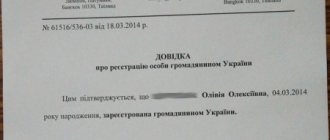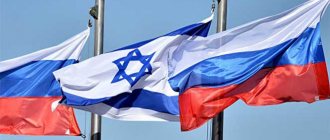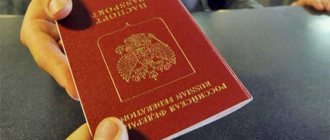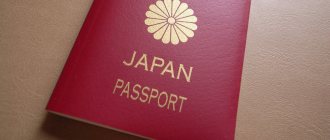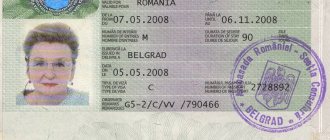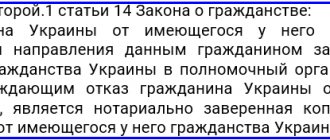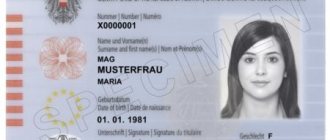What is citizenship by birth
To reduce the number of persons who lack official affiliation with any state, the Convention on the Reduction of Statelessness was adopted on August 30, 1961. This document was signed by 37 powers, and many other countries of the world have included certain provisions of the Convention in their legislation in order to eliminate cases of statelessness, therefore they are ready to establish a legal connection with children born on their soil.
According to this Convention, countries that grant citizenship by birth on their territory to children have the right to put forward additional conditions, after which the person becomes a citizen of that country. However, there are a number of states that are ready to simply grant citizenship to a child for the very fact of being born on their land.
Acquiring citizenship by birth is called filiation.
There are several types of filiation:
- according to the “principle of blood” (from the Latin “jus sanguinis”) - the baby receives the citizenship of his parents, citizens of a certain state, regardless of his place of birth. If the father and mother of the child have citizenship of different countries, by mutual consent of the parents, the newborn receives the citizenship of one of them;
- according to the “principle of soil” (from the Latin “jus soli”) or the law of the land (“jus soli”) - the state grants citizenship to all children born on its soil, regardless of the nationality of the parents of the newborn. For example, if the mother is a citizen of the Russian Federation, the father is a citizen of Latvia, and the child was born in the USA, then the baby will receive US citizenship.
States independently choose the type of affiliation.
“Automatic” acquisition of Russian citizenship
Minor children born in the Russian Federation become Russians if they have a Russian citizen parent.
With minor children born after 2002, everything is simple.
If mom and dad are citizens of the Federation, then wherever the child sees the world, he will be a citizen of Russia. The situation is the same if the child has only one parent - a citizen of the Russian Federation.
A baby born in Russia, in a family of foreigners , will be recognized as a citizen of the Russian Federation by birth when the country of his parents refuses to give him citizenship .
If the spouses belong to different states, then there may be two options:
- One parent is a citizen of the Russian Federation, and the second does not have citizenship, or he is declared missing;
- One parent has Russian citizenship, and the other has citizenship of any other state;
In the first option, the child acquires Russian citizenship automatically, in the second, by consent of the spouses. Read more about obtaining Russian citizenship for children.
Countries that grant citizenship by birth on their territory ("right soli")
The 2021 list of countries that grant citizenship to babies born on their soil includes countries in North and South America, the African continent, Europe and Asia.
To open up prospects for free movement around the world, high-class medical care, obtaining an international diploma and a prestigious job for your child, you should know in which countries land rights at birth are relevant and choose the right country of second citizenship.
Former USSR countries
Wanting to preserve their ethnic composition and reduce the massive influx of immigrants, post-Soviet states rarely grant citizenship according to the “right of the soil.”
The Baltic countries, which became sovereign powers after the collapse of the USSR, legislated for obtaining citizenship by “right of blood.” For example, a newborn can become an Estonian citizen if one of his parents is Estonian.
In Latvia, the citizenship of a child is issued provided that the mother or father of the child is Latvian. Only orphans and children found on the territory of the state, about whose parents nothing is known, as well as direct descendants of Latvians - citizens of Latvia as of June 17, 1940, are entitled to obtain citizenship by birth on Latvian soil.
Of all the countries of the former socialist camp, only Romania is ready to grant citizenship to all babies born on its soil.
European states
Some Western European countries are ready to establish legal ties with persons born on their soil. In particular, these are states such as:
- Great Britain;
- Germany;
- Italy;
- France;
- Spain;
- Denmark;
- Belgium;
- Ireland;
- Greece.
When planning a birth in Europe, remember that Western European countries, before recognizing children born on their territory as their citizens, require a number of requirements to be met, after which citizenship is granted.
Countries of America, Africa and Asia
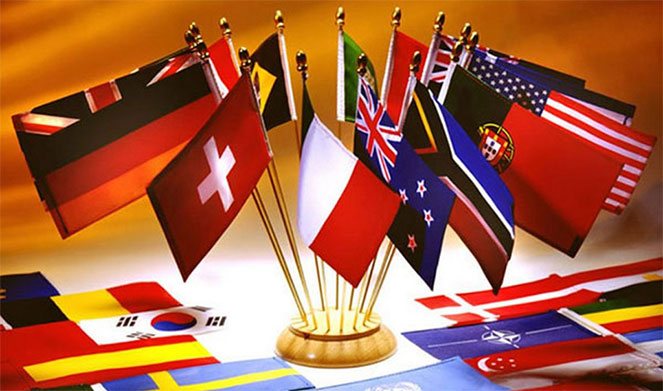
States of North and South America that grant their citizenship to children born on their territory automatically, without the requirement to fulfill additional conditions:
- Antigua and Barbuda;
- Argentina;
- Barbados;
- Belize;
- Bolivia;
- Brazil;
- Costa Rica;
- Dominica;
- Ecuador;
- Salvador;
- Grenada;
- Guatemala;
- Guyana;
- Honduras;
- Jamaica;
- Mexico;
- Dominican Republic;
- Venezuela;
- Grenada;
- Colombia;
- Nicaragua;
- Panama;
- Paraguay;
- Peru;
- Saint Lucia;
- Saint Christopher and Nevis;
- Saint Vincent and the Grenadines;
- Trinidad and Tobago;
- Uruguay;
- Chile;
- USA;
- Canada.
Planning to have a child in the USA is quite popular among Russians.
Asian states practicing "law of the land":
- Fiji;
- Malaysia;
- Pakistan.
The only African country that grants citizenship to children based on their place of birth is Lesotho.
States granting citizenship status by birth
They mainly use a mixed format of filiation, giving parity to the presence of blood ties with a specific state (Australia, Armenia, Russia, etc.). However, it is not always possible to establish civil status based on jurisprudence. This problem is observed due to the large number of stateless people.
According to the UN, there are more than 10 million people in the world who do not have official citizenship. This does not give them the opportunity to exercise their fundamental rights, including education, receiving high-quality and qualified medical care, purchasing real estate, registering marriages, etc.
With an eye on this problem, the UN is pursuing a policy of reducing the number of stateless people, which has led to the formation of combined principles of affiliation in most countries. However, despite international norms adopted by all UN participants, each country reserves the final decision on this issue for itself, establishing certain rules for citizenship at birth.
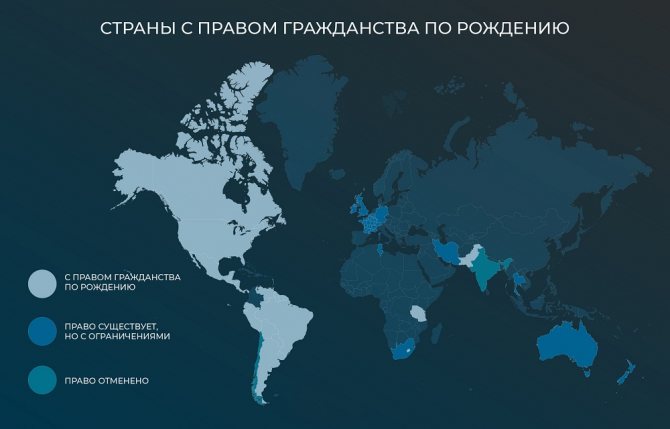
In Europe
Ordinary people believe that having a child in one of the Eurozone countries means obtaining civil rights and, over time, using all the benefits. In practice, the states of the European Union reserve precedence for jurisprudence.
If at least one of the parents is recognized as a citizen of the European state where the child was born, then there are no difficulties in granting indigenous status. Specific conditions vary depending on the internal policies of the state:
- Belgium. For the right of filiation to arise, the parent (adoptive parent) must be born in the Kingdom and live here for a certain period (minimum 5 years) before the appearance of an heir (adoption). It is impossible for a non-resident to obtain a Belgian passport;
- Germany. Here, children can obtain status provided that the parents have legally resided on its territory for at least 8 years and have property interests in Germany (you will need to confirm the availability of housing, amount of earnings, etc.);
- Denmark. The laws of this state are recognized as one of the most stringent in the European Union. Here, to obtain a national passport, a citizen born in Denmark will need 19 years of permanent legal residence;
- Spain. The most loyal in matters of filiation. A child born into the world can become a citizen of Spain, provided that one of the parents is a citizen of the country, lives here for a long period of time and has an official legal status. If all requirements are met, citizenship is issued to the child after 1 year of residence;
- France. French status can be obtained after 13 years of continuous residence. If the child turns 16 years old at that time, he has the right to independently submit an application, subject to permanent residence;
- Great Britain. It involves a simplified version of registration of affiliation based on the principle of soil, provided that the parents are recognized as subjects of the Kingdom or live here on a permanent basis, having a legal status.
The only European state that recognizes the granting of civil status by jus soli is Romania. However, given that the country is a member of Schengen, it is subject to the migration principles of the Schengen area. Therefore, applicants will face significant difficulties.
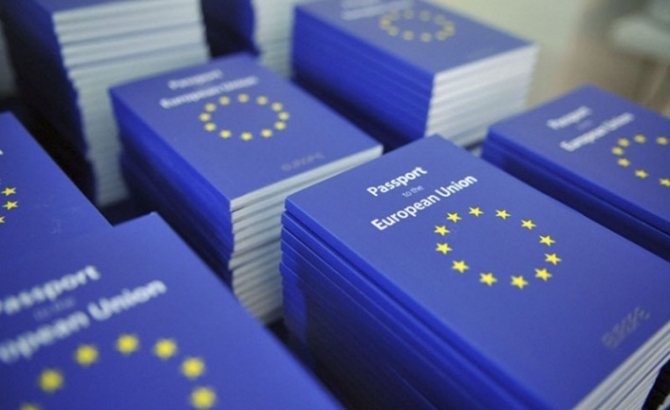
In North and South America
The American continent approaches the issue of granting citizenship by birth in a radically different way than Europe. The principles of blood and soil are equivalent here, act simultaneously and are enshrined in key regulations:
- USA and Canada. Here, it is not difficult to register as an indigenous person by right of soil, but first, the applicant must be of age according to American and Canadian laws (21 years old). Having received the status of an indigenous person, he can call his parents and transfer them to him;
- Mexico. The Mexican Constitution stipulates that the granting of citizenship is allowed in the event of the birth of a baby on the territory of the country, including military, commercial and civil aircraft and sea vessels. A similar principle applies in Latin America and the Caribbean, parts of South America (Guyana, Uruguay);
- Brazil. Recognizes the law of the soil and provides for an accelerated process of naturalization for the mother and father of the baby, who are citizens of other states.
The countries have developed the so-called “baby tourism” (birth abroad with the acquisition of citizenship for the newborn). It provides that pregnant citizens (mostly from disadvantaged countries) are sent here to give birth to a baby, who will automatically be assigned citizenship of the country in which he was born. However, specific conditions vary by state.
States that grant citizenship to parents after the birth of a child on their territory
When deciding which country is best to give birth to a child in order to obtain citizenship, it is important to know that there are a number of powers that also grant their citizenship to the parents of the newborn.

In particular, such rules apply in some Latin American countries. For example, if a baby was born in Mexico or Brazil, then his parents, who have been permanently residing in these countries for two years without a break, have the right to receive a passport from one of these countries.
Why does a child need citizenship?
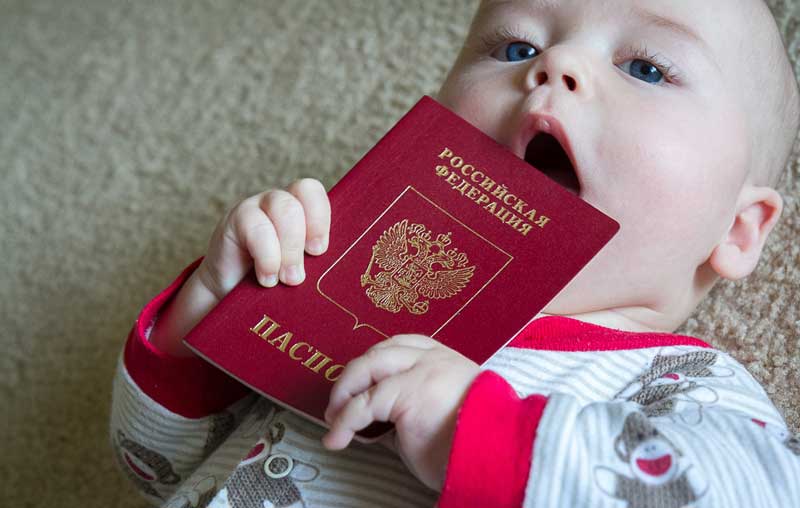
Many parents believe that there is no need for their newborn to obtain citizenship.
But it is necessary to confirm citizenship when a child receives a passport at the age of 14. Until the age of 14, proof of citizenship will be required if the child travels abroad.
Sometimes confirmation of the child’s citizenship is required during the registration of maternity capital. Some schools and kindergartens also ask if the child has Russian citizenship.
Such demands from officials are illegal, and you are not required to present documents on the child’s citizenship, but in order not to complicate your life and the life of the child, it is better to obtain citizenship as soon as possible even before the child receives a passport.
Rating of popular countries for the birth of a baby in order to obtain citizenship
The United States of America leads the list of countries most desired by parents to give birth to a child. The disadvantage of an American passport is that its owner is required to pay taxes from the age of 18, regardless of whether the American citizen lives in the United States or not.
Below is a list of countries favorable for having a child and obtaining a second passport:
- Chile is the safest country out of 33 Latin American countries with a low level of corruption. A Chilean passport gives you the right to enter any country in South America, the USA, Canada, Japan and European countries without a visa. The father and mother of a baby born here have the right to reside in the republic. For Russians wishing to visit Chile, a visa is not required;
- Canada is a country with excellent ecology, low crime rates and free, high-quality healthcare. The holder of a Canadian passport is not required to pay taxes to the country if he does not live within its borders. To come to give birth in Canada, Russians will need to obtain a visa;
- Brazil - grants citizenship to a baby for the fact of birth on its soil. After 2 years of residence in the country, the parents of the newborn have the right to become citizens of this state. To go to give birth in Brazil, Russians do not need a visa;
- Argentina - the holder of an Argentine passport has the right to travel without a visa in Europe, the UK and Latin American countries. Citizens of the Russian Federation do not require a visa to enter Argentina.
The benefits that the child and his parents will receive after the baby is born are decisive for which country to give birth in.
Childbirth in Chile
Main advantages:
- Granting citizenship to a child who was born in Chile without unnecessary obstacles. For children who were born in Chile there is an accelerated opportunity to obtain Spanish citizenship. There are various benefits and quotas for admission to Spanish universities.
- The Chilean passport ranks first in Latin America and opens up the possibility of visa-free entry into 160 countries, including the USA, Great Britain, Canada, Japan, New Zealand.
- In Chile you do not need a visa, unlike the USA and Canada. Visa-free entry into Chile for 90 days exists for Russians and Ukrainians, so there will be no problems with entering the country. Then your stay in the country can be extended for another 90 days. The result is 180 days without a visa.
- Medicine in the country is one of the best in Latin America. Many private clinics have modern equipment and doctors speak English. Doctors in large medical centers are expats or highly qualified Chilean citizens who have undergone internships and training in developed countries in Europe or the USA.
- The country's security index is higher than in the USA, there is no bureaucracy and corruption in the country.
- Prices in Chile are on average 2 times lower than in the USA with an individual approach to women in labor.
- The country has a mild maritime climate, constantly fresh natural fruits and vegetables. Women who come to the country to give birth are settled near the sea.
- In Chile, Russians, Ukrainians and Belarusians are treated kindly.
More information about the possibility of giving birth in Chile can be found on the website https://chilekids.me/ and on social networks:
- Instagram: https://www.instagram.com/chilekids/
- Facebook: https://www.facebook.com/chilekids.me/
- YouTube channel: https://www.youtube.com/channel/UCnIn4o7pQO5bamsH-sN50AQ
Address and contacts in Russia and Chile: Russian Federation, Moscow, Reserve passage, 4 +7 (Christina) Post
Childbirth in Mexico
Women who want to give birth to a child abroad often choose Mexico.
The main advantages of giving birth in Mexico look like this:
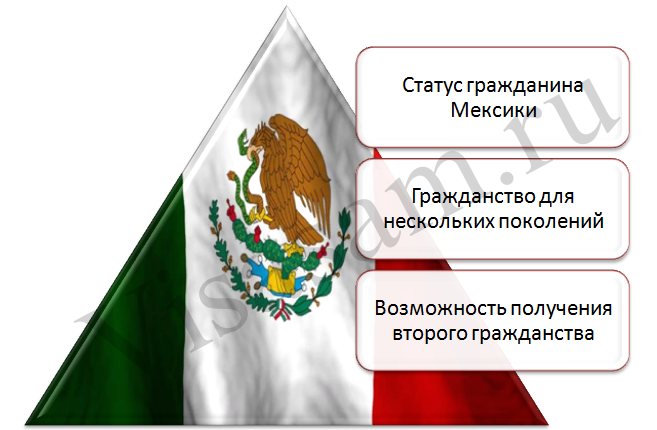
Benefits of giving birth in Mexico
- obtaining the status of a citizen of Mexico (having a passport of a citizen of this country in hand, you can freely travel to other countries);
- issuing citizenship not only to the child and his parent, but also to all other close relatives - grandparents;
- the possibility of obtaining a second citizenship.
The list of countries that Mexicans can visit without a visa is very long – about a hundred. This list includes Australia and all of Europe.
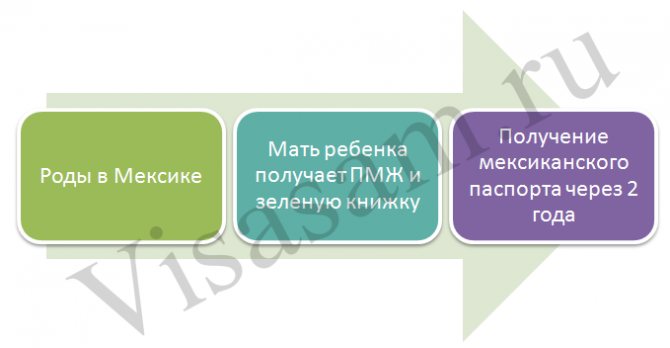
Scheme for obtaining citizenship through childbirth in Mexico
The scheme is quite simple. First, a woman gives birth to a child in Mexico. Then, literally immediately, she is issued permanent residence. After 2 years, parents can apply for a Mexican passport.
The person is also given a Mexican Green Book. This gives him the right to receive a large number of discounts.
Why not CIF and not Israel? In Mexico, the cost of medical services is approximately the same as in Russia. Giving birth in the USA is much more expensive. And getting there is much more difficult. In addition, after 18 years of age, the child will need to pay taxes in the United States, and they are quite large there. If a person does not plan to connect his life with America, then having a child there is extremely unwise.
Israel has a very high level of medicine. But there, citizenship is not given to a child born on the territory of this country, much less to his parents. The only advantage of giving birth in Israel is that the whole procedure will go smoothly, without risks.
Read about the 10 countries with the best medicine on our website.
Childbirth in Argentina
Argentine citizenship gives a person the right to enter Europe. You can give birth either for a fee or for free. If possible, you can get a job at the Fernandez clinic.
If a person wants to obtain citizenship only for a child, and not for himself, then he does not need to bring any documents from Russia. You only need to have your foreign passport with you.
If the child has a father, then he must also come to fill out the heir’s birth certificate. The certificate is issued by the hospital. You don't need to pay for it.
Immediately after giving birth you need to write a statement. If a young mother does not speak the state language, then the presence of an interpreter is strictly necessary. After filling out the application, you will need to wait 15 days.
If such a function is not available in the clinic, then the woman is given a certificate of birth of the child, and a list of addresses where the certificate can be obtained.
High-quality photocopies are attached to the original passports. Notarization of documents is not required.
After this, an apostille is placed on the birth certificate. This is necessary for this document to be adopted in Russia. Such a document is made on the same day. But if a person comes on Friday evening, then it will be possible to receive it only on Monday. The cost per question is 90 pesos. Everything happens on a first-come, first-served basis.
The video explains in detail about giving birth in Argentina and obtaining citizenship.
Childbirth in Ecuador
Medicine in Ecuador is free, and giving birth here is also completely free. Caesarean sections are also performed without payment. But if this is alarming, then you can agree on the provision of paid services.
On average, it costs $1,700 to give birth in Ecuador. This amount includes everything from removal of the ward to surgery.
According to Ecuadorian law, after the birth of a child, he can be given two names at once.
Parents may be offered a vaccine for their newborn. Parents can either agree or refuse - this is an optional item.
The child born is a citizen of Ecuador. If the parents have Russian citizenship, then the baby is also a legal Russian citizen.
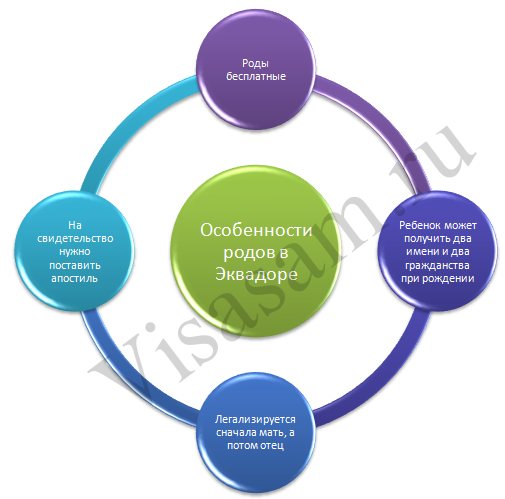
Difficulties may arise when obtaining Ecuadorian citizenship for a child. They are mainly related to the documents of the parents.
Quite funny cases have been recorded when a husband and wife were asked by employees of the local registry office to provide some other document proving the fact of marriage. The reason was that the registry office employees considered the surnames Ivanov and Ivanov to be different.
If the passports of both spouses do not contain information about marriage, then a certificate confirming the fact of marriage is required.
When all the documents are completed, parents are given a certificate. You will need to put an apostille on it. This will help give the newborn Russian citizenship.
This stage is called legalization of existing documents. Then you will need to come with your child and take his photo.
An apostille can be obtained by contacting the Ministry of Foreign Affairs. Issue price: $25.
The mother of a newborn can register in Ecuador first, then the father. If necessary, this procedure is carried out in relation to other relatives.
Obtaining citizenship through childbirth in Ecuador? Find out important details in the video.
FAQ
Is Indonesian citizenship given to a child if the birth is planned in Bali?
No. The Indonesian legal system provides for the possibility of obtaining citizenship primarily based on the “principle of blood”. If the father and mother of the baby are Russian, then the baby born in Bali will become a Russian. The child's birth certificate will need to be certified at the Russian Embassy in Jakarta. If the baby's father or mother are citizens of Indonesia, the newborn can become a citizen of this country. Therefore, answering the question regarding whether, if you give birth in another country, what citizenship the child will have, it should be noted that everything depends on the legal system of a particular state.
What documents do I need for my child to return home?
If the parents of a child born abroad are Russian, their baby automatically becomes a citizen of the Russian Federation, regardless of the place of birth. To return home to Russia, your baby does not need a visa - you only need Russian foreign passports of all family members. A second passport, for example, an American one, if the newborn was born in the USA, can be issued at the US Embassy in Moscow upon arrival at home.
General information
Many Russian women in labor have long sought to give birth somewhere far from their country. Childbirth abroad takes place in a privileged, most comfortable environment. According to some experts, childbirth in France and Switzerland is a kind of VIP service.
According to statistics, the main contingent of clients of foreign maternity hospitals are women who have crossed the fortieth barrier - the same ones who in Russia, according to Soviet tradition, are called “old-timers.”
Sometimes the doctor who is caring for the pregnancy notices that the woman in labor has a serious pathology. The woman understands that, given the current state of domestic medicine, its risks in Russia are much higher than in any other country.
Adult women choose one of the European countries. Young people prefer the USA and Canada, where there has recently been a real baby boom.
In 2021, obtaining citizenship through childbirth is quite difficult. Many countries in Europe do not grant citizenship to a newborn if the parents are foreigners.
In some European Union countries, citizenship is given to an infant after birth. But this is only relevant if his father and mother have permanent residence in one or another EU country.
Until 2001, the last country by birth in Europe was Germany, until 2007 - Ireland. Now there are no such countries on the European continent.
Citizenship by birth is also not granted in Asian, African countries, Australia and New Zealand.
A child will receive 100% citizenship only if he is born on the American continent - from Canada to Argentina. In this case, citizenship is guaranteed to him only on the basis of a local birth certificate.
Real reviews
Cristina about the citizenship of the child in Chile: “We gave birth to the child in Chile. We received a birth certificate 3 days after giving birth, a week later a Chilean ID and passport, and another 3 days later a Russian one. And we are already in Russia with these documents. We lived there for less than 2 months. We had a great time before the birth and, of course, after with our son! He is now a Chilean citizen."
Elena, whose birth took place in Ottawa (Canada): “A Canadian passport in Ottawa is issued by mail, but at the post office you can pick up an envelope with a passport application form. The passport application form is simple, the only difficulty is that you need a guarantor in Canada - a Canadian who has known you for more than 2 years. We need his full name, passport details and signature. We also need a special sample of 2 photos of the child - we took them in a photo studio for $25 (one also has the signature of the guarantor). The passport costs $54 and usually takes 2 weeks to complete. The husband submitted and collected the passport personally; a child is not required.”
The general procedure requires documents
A typical package of documents for obtaining citizenship includes:
- 2 statements according to the sample;
- passport;
- a residence permit document certified by a notary;
- receipt of payment of state duty;
- renunciation of citizenship of the state in which he previously lived - in 2 copies;
- birth and marriage certificates;
- 4 photos of the applicant;
- education document;
- documents confirming the change of surname;
- income certificate;
- certificate of passing the Russian language exam (diploma, certificate of the Russian Federation, etc.);
- children's birth certificates.
- For those born in the USSR
- The simplified procedure for obtaining Russian citizenship by former citizens of the USSR is defined in paragraph 1-b of Article 14 of the Federal Law “On Citizenship of the Russian Federation” and by Decree of the President of the Russian Federation No. 1325, which states that the following can be used as a document confirming the fact of birth in the Union:
- Birth certificate;
- Passport of a citizen of the USSR;
- Certificate of exchange of a passport of a citizen of the USSR;
- Document of a stateless person.
- Important! All details of the procedure are set out in the Regulations on the procedure for considering issues of citizenship, enshrined in the Presidential Decree.
- People born in the USSR can obtain citizenship by joining the program for the resettlement of compatriots. This right is enshrined in Part 7 of Articles 14 and 35 of the Federal Law on Citizenship. A necessary condition is registration at the place of residence in the Russian Federation .
- You can find out who is a compatriot and is subject to the simplified procedure for obtaining citizenship in the Federal Law “On State Policy”. If a person falls into this category, they must have:
- temporary residence permit in the Russian Federation, or residence permit if available;
- certificate of participant in the above-mentioned State program;
- document renouncing existing other citizenship.
- If it does not fall into this category, then:
- residence permit;
- Certificate of income;
- Certificate of passing the language proficiency exam;
- A document confirming the fact of birth in the USSR.
- This procedure takes from 3 months to one and a half years.
- Important! If your compatriot status is confirmed and you enter the program, obtaining citizenship will take 3 months, otherwise – from six months.
- From the moment of arrival
- From the day you cross the border, you will need to take steps to:
- Obtaining a migration card;
- Submitting a notification to the Migration Office about arrival - within the first week;
- Obtaining a temporary residence permit - outside the quota - and registration at a temporary place of residence;
- If necessary, obtain a residence permit;
- Collection of necessary documents;
- Submitting an application.
What programs can they turn to?
Which programs can they contact? You should also take into account Part 7 of Art. 14 and art. 35 of the Federal Law on Citizenship, which recognize the right to a simplified procedure for participants in the Program for Assistance in the Resettlement of Compatriots who are registered at their place of residence on the territory of the Russian Federation.
Thus, referring to the definition of the word “compatriot” presented in the Federal Law “On State Policy”, if a person belongs to the peoples historically living on the territory of Russia or is their descendant, or has relatives in a direct ascending line born on the territory of the Russian Federation, then to simplify the procedure, it makes sense to become a participant in this program (read about obtaining Russian citizenship through parents here).
The simplification concerns the reduction of the decision-making period to 3 months, exemption from the requirements for a residence permit, confirmation of a legal source of livelihood and language level. If a person does not belong to the “compatriot” category, citizenship can be obtained within 6 months , using Part 1 of Article 14 and in accordance with Article 35 of the Law.
Expert opinion
Vasiliev Oleg Borisovich
Many years of experience in various areas of law
It is still necessary to clarify that the terms “nationality” and “subject/subjects” when considering issues of citizenship can refer to states whose head is the monarch. That is, in countries with a monarchical, and not, for example, a republican form of government, since this term reflects a one-sided political and legal relationship between the monarch and an individual, and not the state and its citizens. Regarding the topic of the article, it would not be amiss to make an addition in connection with the release of recent Decrees of the President of the Russian Federation regarding the simplification of the procedure for obtaining Russian citizenship by persons who are also directly related to those categories of citizens who previously had (received) Soviet citizenship.
In connection with the previously adopted amendments to the law “On Citizenship of the Russian Federation” dated May 31, 2002 No. 62-FZ, the President of the Russian Federation was vested with the authority to simplify and grant citizenship of the Russian Federation by his separate decrees. Which was implemented.
Firstly, through Decree of the President of the Russian Federation N 183 “On determining, for humanitarian purposes, categories of persons who have the right to apply for citizenship of the Russian Federation in a simplified manner” dated April 24, 2019, citizens of the DPR/LPR received the right to a simplified procedure for granting citizenship, respectively, including those who previously had USSR citizenship (that is, first received a passport before 1992 in the national republics of the USSR). However, in order to use the procedure on this basis, it is still necessary to obtain a passport (and citizenship) of the LPR/DPR before submitting such an application.
Secondly, through the soon followed Decree of the President of the Russian Federation N 187 “On certain categories of foreign citizens and stateless persons who have the right to apply for admission to citizenship of the Russian Federation in a simplified manner” dated 04/29/2019, they received the right to simplified registration persons who have Ukrainian citizenship, living on the territory of Russia and having a temporary residence permit, residence permit, certificates of a participant in the State program for voluntary resettlement or temporary asylum, a refugee certificate, as well as their parents and children, which is very important. That is, in the first case we are also talking about citizens who received their first passport back in the USSR. Although their adult children may well fall into this category.
8 (800) 350-29-87Moscow

